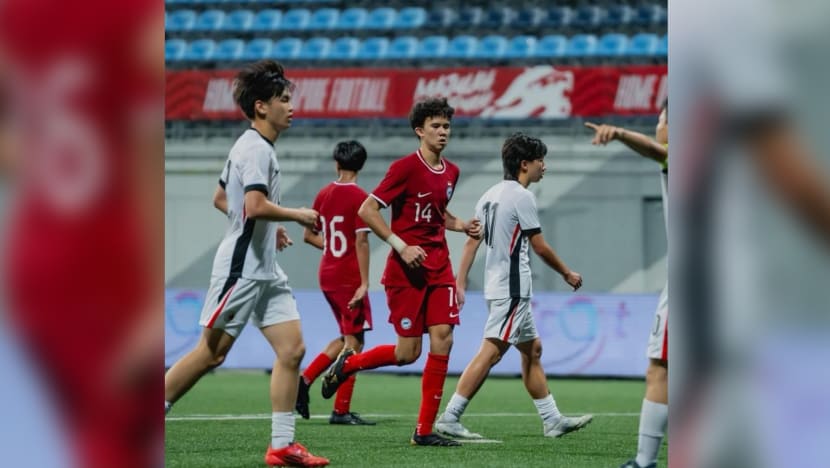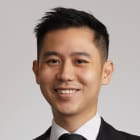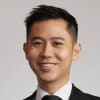Commentary: The FAS U-17 episode reflects a bigger problem with how we frame sports and academics in Singapore
Our student-athletes are capable of so much more, and it would be remiss of us to limit them from the get-go, says former sports journalist Chua Siang Yee.

Mika Baihakki (number 14) in action. (Photo: Facebook/Baihakki Khaizan)

This audio is generated by an AI tool.
SINGAPORE: The decision to drop footballer Mika Baihakki from the national Under-17 team, after he opted out of an overseas training camp next month to prepare for examinations, has attracted plenty of discussion online.
Adding intrigue to the situation is that Mika’s father, former national stalwart Baihakki Khaizan, is currently a full-time employee of the Football Association of Singapore (FAS), sitting in its technical division office.
The FAS has stated that requirements for squad selection were communicated in advance, and that "total commitment” was required for training, including the overseas camps.
While such criteria are reasonable from a high-performance standpoint, the online reaction has renewed an age-old debate about reconciling Singapore’s focus on academics with serious sporting ambition.
In this instance, the FAS appears to have acted fairly and within the boundaries of its selection policy and scheduling constraints. For one thing, the FAS does not control the schedule for the Asian Football Confederation Under-17 Asian Cup Qualifiers, which will be held between Nov 22 and 30 this year. All it can do is to ensure the team is as prepared as it can be.
This appears to have been done, with three training camps and a Lion City Cup outing planned for the team. Further, the selection policy, as well as the exam dates, were made known to players months in advance. This provides some opportunity for players and their families to plan ahead, for example, by frontloading their revision, or by planning their revision around the training schedule.
Yes, this is challenging; the pressures Singaporean students face around national exams are not minor. Athletes may find themselves stuck in their rooms revising while teammates enjoy some downtime overseas. But that is what being a top-level athlete demands - discipline, determination and dedication to what is often a monastic and boring life.
IT DOESN’T HAVE TO BE A ZERO-SUM GAME
From a broader perspective, this episode also presents an opportunity to have a conversation about sports and studies.
In particular, why was the instinct to pull Mika out of the training camp because examinations were around the corner? Is it always a zero-sum game? Must student-athletes always choose one at the expense of the other?
This is not a question of taking FAS’ side over Mika or his family, or vice versa, but about having a deep think about how we can better support young athletes.
Many coaches have told me that one of their biggest frustrations is seeing student-athletes pulled from training once examination nears. This issue affects sports at all levels, from school teams to the national squads. When athletes take an extended break from the sport, they take time to regain sharpness and hit peak physical and physiological condition. Coaches also have to change their training load, and this could potentially stymie their improvement. Swimming legend Michael Phelps once told reporters that it took him two days to recover from missing a day of training.
Sergio Lopez, who coached Singapore's only Olympic champion Joseph Schooling when the latter was attending high school in Florida, once said: “The reality is a kid doesn’t study for eight hours a day. They need to maximise their time, and understand that yes, they have exams, ‘but maybe I should return to practice, too, and have this discussion with my coach’ and don’t just disappear from practice for three weeks.”
JUGGLING STUDIES AND SPORTS
The truth is, sporting success need not come at the expense of academics. It is possible to juggle both, and many athletes have.
University athletes routinely make up a significant portion of the United States’ Olympic teams. At the 2024 Olympics, French student-athletes secured 34 Olympic medals for the country.
Just last week, 15-year-old Max Dowman, a Year 10 student in the United Kingdom (equivalent to Secondary 3 in Singapore), made his Premier League debut for Arsenal.
Closer to home, runner Mok Ying Ren juggled medical school, national service and training throughout his career, but this did not prevent him from winning the SEA Games triathlon (2007) and marathon (2013).
Koh Jian Ying captained Singapore’s water polo team while balancing law school and a legal career.
Schooling was a student-athlete at University of Texas Austin when he beat full-time athletes Chad le Clos, Laszlo Cseh and Michael Phelps in the 100m butterfly.
To be sure, many of these athletes had strong institutional support. In the US, many colleges have dedicated student-athlete programmes which help athletes manage their schedule better. For instance, student-athletes have priority when choosing lecture timeslots, and this allows them to choose timings that work best with their training schedule. There is also flexibility in relation to examination dates, which can be pushed forward or delayed depending on competition schedule. Some could also take proctored exams while competing on the road.
However, the academic requirements are the same, and athletes are subject to the same academic standards as their peers.
The fact is it will not be easy to juggle both sports and studies. But, as the likes of Schooling, Mok and Koh have shown, it can be done with grit and tenacity, qualities that in any event should be second nature to elite athletes. When there is more to do, athletes learn to be more productive and focused, skills that will come in handy post-retirement.
SUPPORT STRUCTURES
This is not to say student-athletes have to do it all on their own. Support structures throughout their schooling years, for instance, would certainly help athletes chase sporting glory and academic achievement.
To that end, Sports Excellence Scholarship for undergraduates and a memorandum of understanding between the Singapore Sports School and six local universities in April this year to provide more flexible academic support for student-athletes is a step in the right direction.
Can more be done? Sure. For instance, it may be helpful to consider support at the secondary school level, where pressure to prioritise exams can be strongest, and where there is less flexibility in terms of scheduling. Student-athletes at this age would also benefit from schemes targeted at university athletes. These are all conversations worth having, but such policies will not go far if we keep telling our students they can choose only sports or studies.
Our children are capable of so much more, and it would be remiss of us to limit them from the get-go.
Chua Siang Yee, a former sports journalist, is a lawyer at A&O Shearman.



















